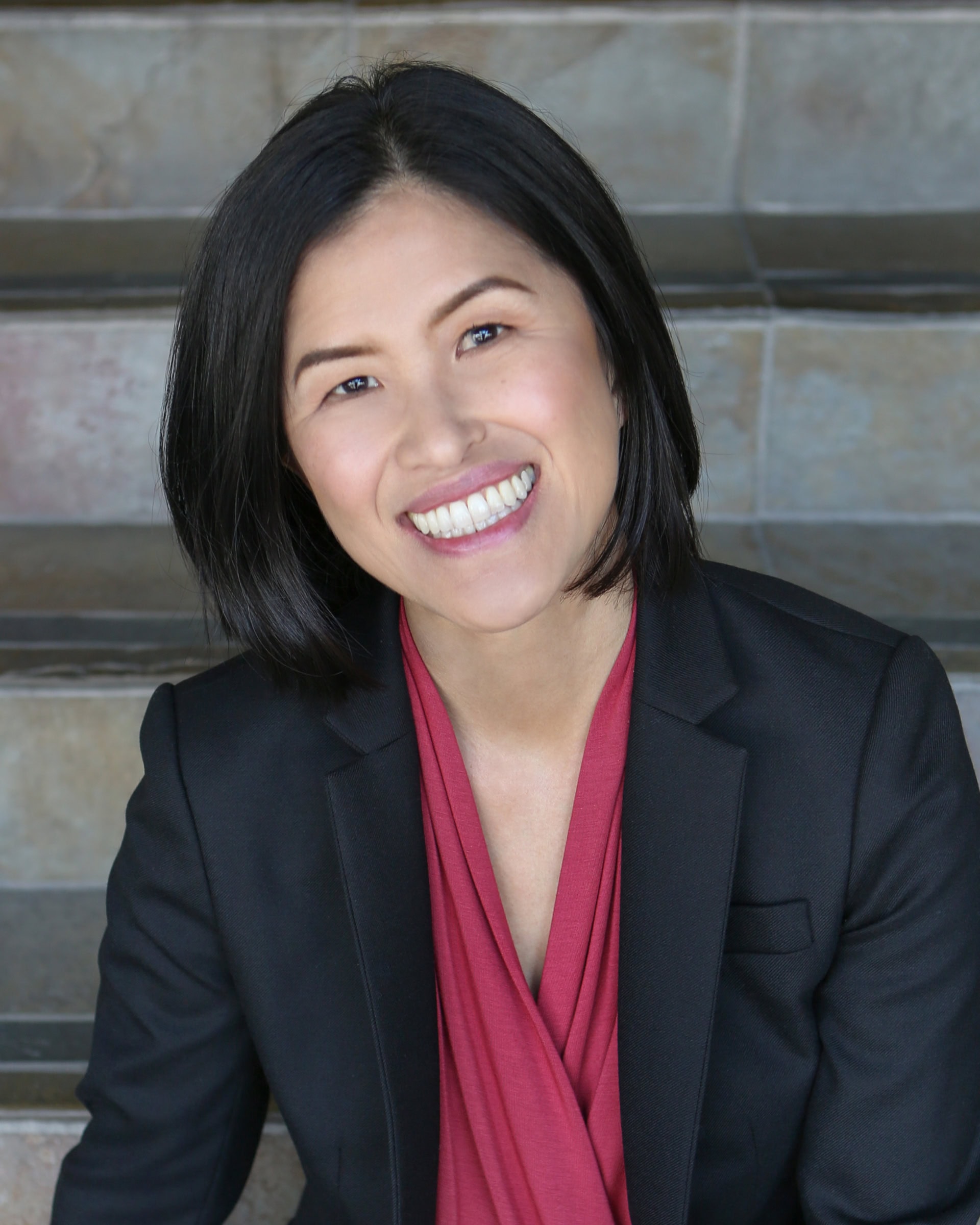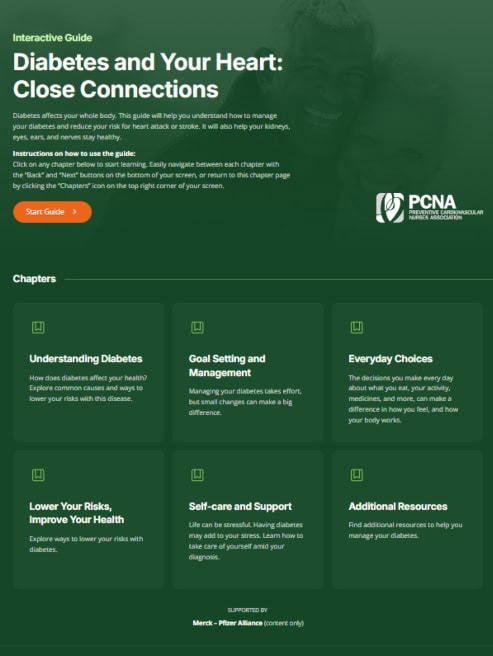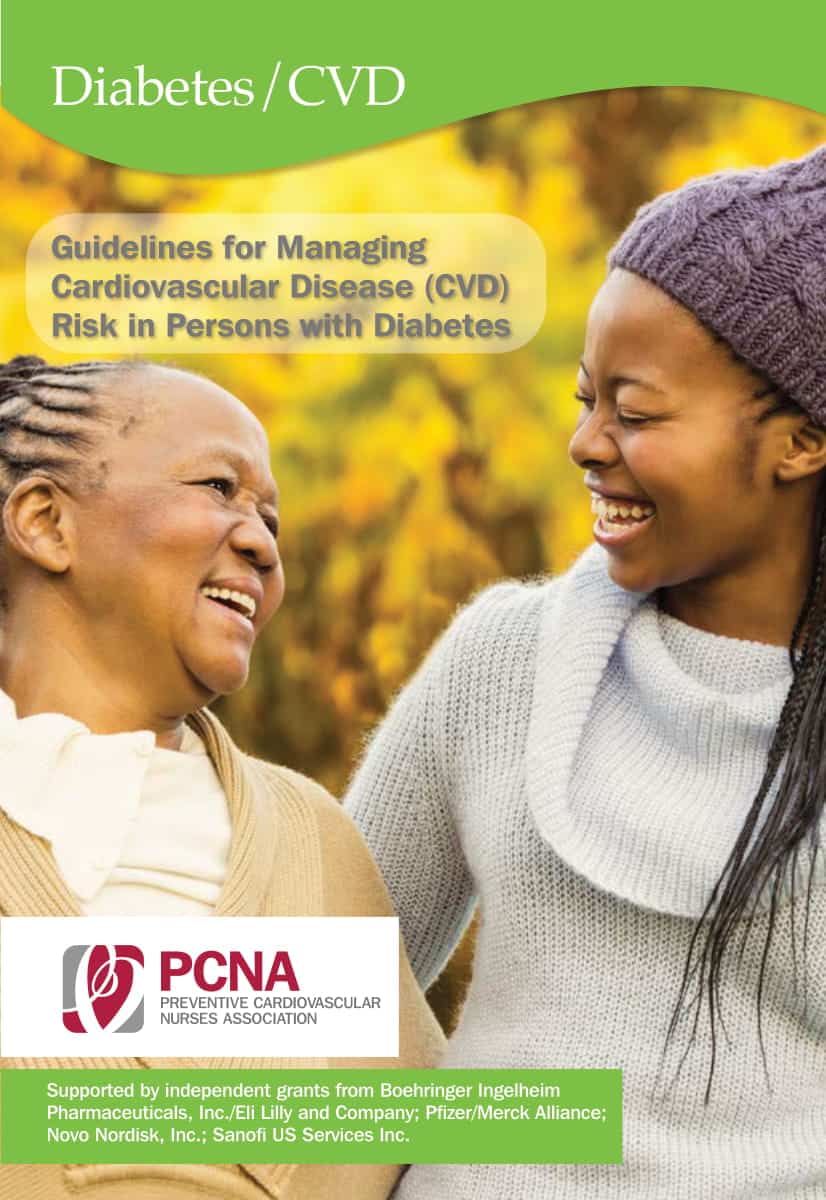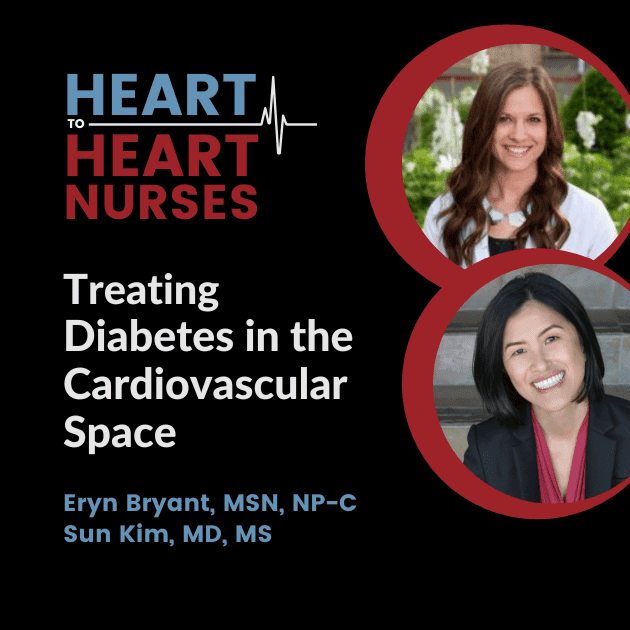How can diabetes be effectively managed in cardiovascular and primary care practices? Join guests Eryn Bryant, MSN, NP-C, and Sun Kim, MD, MS, as they discuss the challenges and opportunities for helping our patients with diabetes, particularly in using SGLT2 inhibitors and GLP-1 receptor agonists in treatment.
Episode Resources
Diabetes & CVD podcast transcript
[00:00:00] Welcome to Heart to Heart Nurses, brought to you by the Preventive Cardiovascular Nurses Association. PCNA’s mission is to promote nurses as leaders in cardiovascular disease prevention and management.
Geralyn Warfield (host): Thank you very much for joining us today. We’re speaking with Eryn Bryant and Sun Kim, about whether or not we’re ready to treat diabetes in cardiology. So, I’d first like to introduce Eryn Bryant.
Eryn Bryant (guest): Hi.
Geralyn Warfield (host): Eryn, tell us a little bit about yourself.
Eryn Bryant (guest): Yeah, absolutely. So, my name’s Eryn, I’m a nurse practitioner. I spent the good portion of my nursing and advanced practice career at Stanford. I worked in the general cardiology clinic, with a focus in women’s heart health and preventive cardiology. And then recently, in the last year,18 months, I have moved back to my home state of Ohio. And I’m working for Ohio State Wexner Medical Center in the heart failure program as the lead APP heart failure [00:01:00] coordinator. So, a little bit of a different patient population in cardiology, but still cardiovascular medicine, nonetheless.
Geralyn Warfield (host): That’s wonderful. And Dr. Sun Kim, could you tell us a little bit about yourself, please?
Sun Kim (guest): Sure, of course. So, I am an Associate Professor of Medicine at Stanford University in the Division of Endocrinology. I treat patients, but also am very involved in research. And both my clinical and research focuses on patients with prediabetes, Type 2 Diabetes and obesity.
Geralyn Warfield (host): So, you both bring a lot of great experience to our discussion today, and I’m really excited. So, I’m going to dive right in with my first question. Is, are we ready to treat diabetes in cardiology?
Eryn Bryant (guest): Yeah. So, that’s a great question—a hot topic for sure. And I, I think it, it might actually be a little bit misleading because I think that we really hope to after our discussion, and after our talk today, reframe the way we think [00:02:00] about utilizing the class of SGLT2 inhibitors and GLP-1 receptor agonists, not just for diabetes management, but these are really cardiometabolic drugs that have, of course, glucose-lowering benefits, but also benefits for the kidneys and,weight loss, and have been shown to be cardioprotective. So, for those of us in cardiology, we really should be, you know, have these class of, of medications in our toolkit for our cardiac patients.
Sun Kim (guest): I agree, Eryn. So those are, you know, excellent points. I do sometimes feel that the cardiology service tends to steal a lot of the medications that we, you know, first, maybe discovered and researched, but I’m only kidding, of course. There are no, you know, turf wars when coming to treating patients. And I think these drugs really have shown great benefits all around. And I do think we should start calling them cardio-metabolic drugs.
I’m, I’m [00:03:00] actually in favor of even having a, a specialty that focuses on cardiometabolic issues. And it would really tie in, you know, endocrinology, cardiology, even nephrology. Because we share so many of the same patient population and these drugs really, you know, bring on the possibility that we can transcend, kind of division lines, and treat patients holistically for everything that, that they need care for.
Geralyn Warfield (host): I love that idea that we can work collaboratively together to make things even better for our patients. And we’ve come a long way from the time where we were siloed in terms of this medication was used solely by this particular kind of practice and so on. So, I’m really glad to hear you about reframing this topic for us and getting us to think a little bit more broadly about how this can be applied.
So, my next question for you is just [00:04:00] considering that SGLT2s and GLP, GLP-1s are cardiometabolic drugs that should be used widely by primary care, but they also should be used in cardiology, and nephrology, and some of those other groups that you’ve spoken about. Could you talk a little bit further about how that might be applied?
Eryn Bryant (guest): Yeah. So, I’ll kind of hone in, especially, on our heart failure patient population. because when we’re thinking about sort of the, the four pillars, so to speak, of our heart failure GDMT—or guideline directed medical therapy—SGLT2 inhibitors are one of those.
So, we really, you know, independent of if the patient has diabetes or not, especially for, especially for patients with heart failure reduced EF, but also more recently, even patients with heart failure preserved EF. So, we really should be reaching for that class in particular, you know, for our heart failure patient population—independent of A1C, independent even of Metformin use, for those patients with diabetes.
So, I [00:05:00] think, and, and even patients that have cardiovascular disease or renal impairment, there’s been a lot of, there’s, you know, there’s a lot of, benefit for utilizing these, these therapies.
Sun Kim (guest): Yeah. And I think it really brings in the concept of trying to use these drugs for the right patients, but not necessarily by a specialty. And so, I really do hope it expands to primary care and all the divisions. I will, however, say the uptake can be slow. Initially when we looked at the data, it did seem that, you know, perhaps endocrinologists tended to use these drugs more. And which is always the case when a new drug comes on the block.
However, because of their benefits, I think they are being readily adapted. I know, you know, cardiologists are using them. And then, in our institution, nephrologists as well are using them pretty frequently.
Eryn Bryant (guest): And I will say that, which is good. I think it’s super exciting that it seems that [00:06:00] we’ve, sort of, turned a corner in the last, you know, year, maybe two, with the, the adoption of utilizing these therapies, at least in cardiology is happening. And especially because they made their way into guidelines.
I think we need to use some level of caution for patients who are on other diabetes therapy, such as insulin. You know, many of—myself included—many of cardiology clinicians are definitely not, managing insulin in our day-to-day practice. And so, I think, think for some patients who are on other or multiple, diabetes therapies, who we’re hoping to initiate an SGLT2 inhibitor or GLP-1, this is a really great opportunity for, like Sun said, a multi-team approach. And we really need to be reaching or, or kind of leaning on, our endocrinology colleagues, primary care colleagues who, who just do this more than us and make sure that we’re doing the safe thing for our patient, if things need to be titrated, you know, so I think we don’t want to ever go it alone, so to speak.
Sun Kim (guest): Yeah. And I think to [00:07:00] that point, because of these drugs, I think I’ve gotten to know other colleagues more because they’re often messaging, saying that, you know, “Either I’m not familiar with it” or, “I’m going to start it, what do you think?” But no one’s necessarily just saying, “I want you to do it,” but just letting me know. So, I think I, I do appreciate that.
But sometimes people are busy, so I don’t know to what extent everyone is happy about extra messages, you know, regarding something that you’re not doing in the moment. But right now, I’m kind of appreciating everyone trying to work together to get people on the best medicines possible.
Geralyn Warfield (host): And with that, we’re going to take a little break. We’ll be right back.
Geralyn Warfield (host): We’re back with Sun Kim and Eryn Bryant talking about a little bit different take on diabetes drugs and their use in cardiology, and in other locations. My next question for you both is, the changes in guidelines that have happened and what kind of best practices in using and prescribing these kinds of drugs, [00:08:00] and how these drugs, perhaps, need to be used earlier in the treatment regimen than we’ve seen in the past. And I’m wondering who would like to start that part of the discussion?
Sun Kim (guest): So, I am actually super excited that the American Diabetes Association finally changed their approach to how we start therapy for patients with diabetes, which not, you know, not that I have anything against starting with Metformin. And I think a lot of patients can start with Metformin first, because it efficacious, and it’s relatively inexpensive, which is very appreciated by a lot of our patients.
So, I don’t doubt that a lot of patients would start Metformin first, but they allowed us a chance to individualize therapy based on patients’ medical issues. So really tailoring the therapy to fit the patient. And it allows us a chance to use these medications before even Metformin, if they’re indicated. Because [00:09:00] previously, honestly I would sometimes even need to just prescribe Metformin, just to have it there because otherwise I would not be able to get the other medications authorized. So, they’ve really allowed me to bypass that step to get the best therapy for our patients.
Eryn Bryant (guest): Yeah, no, absolutely; totally agree. And I also think that it highlights an opportunity for shared decision making with our patients. I’m a big believer that patients should have a say and a stake in their own health.
And many of these patients are on, you know, many medications and it’s, it’s definitely something that we need to talk and, and educate our patients on. Especially if they’ve had pretty well controlled glucose or, or their diabetes has been tightly controlled, it can seem counterintuitive to them for us to say, okay, all of a sudden we’re stopping something that has worked for their diabetes management to initiate a therapy that they’ve not heard of, they haven’t been on, or back off their [00:10:00] insulin, or you know, possibly titrate their diuretics to get these medications on board.
So, understandably, for patients with chronic disease and they’re, you know, they’re, they’re human. They have a lot going on. It’s, it’s a hard—it can be a difficult topic. And so, I think, having patients talk to us about what’s important to them, what their comorbids may be, providing education is really the way to go. And by not having, as, as Sun said, not having to initiate Metformin, just to get another medicine on board, is very helpful to patients who already have 20 medications.
Sun Kim (guest): And, honestly, I have had to do that. I think patients also appreciate these medications, because I, I will often say, listen, you know, “This helps lowers glucose, but also your blood pressure, also your weight, and also, guess what? It’s good for, you know, your heart and your kidney.” Like, why wouldn’t you want to be on that medication?
They always ask me about side effects, then we get there, but, but, I think, you know, I think it’s exciting to [00:11:00] have these drugs as part of our armamentarium, as one of the speakers mentioned today.
Eryn Bryant (guest): Yeah, I agree. So, at Stanford, when we first started utilizing these therapies in our cardiology practice, we actually built in a shared decision making algorithm where we, before even getting into the spiel about the medications and the options and the benefits and risk and all that, we would, quite frankly, ask or just ask the patients, “What’s important to you? What are your health goals? What does health look like to you?”
And that really helped frame our conversation for talking about these medications. You know, if a patient says to us, “I don’t want to go on dialysis,” you know, well then we have some kidney protective benefits for these therapies and we can really talk more about that.
Or if they are like, “I am terrified of needles, I will not give myself an injection.” Well, that’s fair. You know, so I think it, it was a way that we could, work, provide education but also take patient preferences into, into, play when we’re making decisions. [00:12:00]
Geralyn Warfield (host): So, the process is collaborative with our patients and also with our colleagues across different specialties. You have given us so much to think about and so much for us to apply in clinical practice.
I have one remaining question for you, and that is for our listeners who are interested in learning more, might you have any resources that we could point them towards?
Eryn Bryant (guest): So, yes. So, the Journal of American College of Cardiology has an expert consensus decision pathway, initially in 2018 and then in 2020, that’s for a cardiology clinician that perhaps, wants some nice flow-like algorithms for prescribing these therapies and what to think about. That’s a really nice resource.
And then also the Standards of Medical Care and Diabetes from the American Diabetes Association gets updated every year. And that’s kind of, that, that’s your guidelines for managing diabetes?
Sun Kim (guest): No, I, I think that’s perfect. And the, yeah, again, the ADA, you know, updates that yearly and there’s a pharmacologic [00:13:00] management of diabetes section—I think it’s section nine, for your reference.
Eryn Bryant (guest): And I know we’re talking about these medications specifically, but the preventive cardiology person in me always wants to highlight whenever we’re treating chronic illness, don’t forget: lifestyle’s a huge factor. So, you can take every opportunity that we’re, we have with our patients to promote wellness overall, holistically.
Geralyn Warfield (host): Is there anything else that you would like the audience to know about this important topic?
Sun Kim (guest): Yes. You know, I, I don’t want to get on a soapbox, but I really do want, you know, everyone to use these in the right way. And one of the right ways is, obviously, the people who need it should get it the most. But to also remind people that these drugs can have side effects. And so, I think when we start or when we initiate the drugs, we need to think about, kind of, what potential [00:14:00] effects they may have on the patient.
A couple of things for patients with diabetes: if they’re on other antihyperglycemic medications and their A1C Is already reasonable, thinking about titrating off some of the medications that can increase risk for hypoglycemia, like sulfonylureas and insulin (I think Eryn already mentioned that). But also, SGLT2 inhibitors can have other side effects and, some of the ones that are common for my patients are yeast infections. So, telling patients about that upfront. I even give them a little printout about maybe focusing on some hygiene practices, which can decrease risk for yeast infections, I think are helpful.
And then there are rarer side effects that I think patients should know up front about: euglycemic diabetic ketoacidosis. So, if they’re going to have surgery, knowing that they may need to hold these medications, or if they’re ill, and they’re not eating, they [00:15:00] may need to hold these medications.
I know we don’t have a lot of time in clinical practice, but I think if we’re going to widely use these medications, it’s also important to teach patients about potential harm.
Geralyn Warfield (host): Well again, thank you so very much for spending time with us today. PCNA really appreciate you sharing this information with our audience and helping us be better clinicians and improving patient outcomes as a result. I am grateful to Dr. Sun Kim and to Eryn Bryant for their time today. This is Geralyn Warfield, your host, and I will see you soon.
Thank you for listening to Heart to Heart Nurses. We invite you to visit pcna.net for clinical resources, continuing education, and much more.
Topics
- Diabetes
Published on
January 17, 2023
Listen on:

MSN, NP-C

MD
Related Resources


Online Interactive Guides
Diabetes and Your Heart: Close Connections Online Interactive Patient Tool
June 12, 2025

Provider Tools
Guidelines for Managing Cardiovascular Disease Risk in Patients with Diabetes Pocket Guide
January 19, 2025






